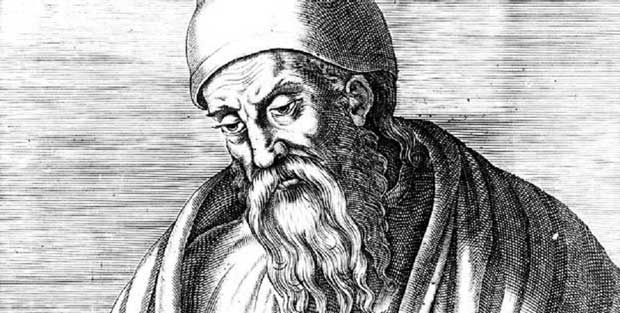Pythagoras: The Philosopher Who Shaped Mathematics and Philosophy
The Life and Origins of Pythagoras
Pythagoras, one of the most influential thinkers of antiquity, remains a towering figure in the histories of mathematics, philosophy, and science. Born around 570 BCE on the Greek island of Samos, Pythagoras ventured far beyond his homeland, leaving a legacy that has endured for over two millennia. His life is shrouded in myth and legend, making it difficult to separate fact from fiction. What remains undisputed, however, is his profound impact on Western thought.
From an early age, Pythagoras displayed an insatiable curiosity. He studied under several teachers, including Pherekydes, a philosopher known for his mystical leanings, and Thales of Miletus, one of the first known Greek mathematicians. These early influences shaped his intellectual journey, blending mathematics with metaphysical inquiry. In his youth, Pythagoras traveled extensively, visiting Egypt and Babylon, where he absorbed mathematical and astronomical knowledge that would later become foundational to his own teachings.
The Founding of the Pythagorean Brotherhood
Around 530 BCE, Pythagoras settled in the Greek colony of Croton (modern-day Crotone, Italy), where he established a religious and philosophical community known as the Pythagorean Brotherhood. This group was unique in its time, combining philosophical speculation with religious rituals, dietary restrictions, and a strict code of conduct. Members of the brotherhood lived communally, sharing possessions and pursuing knowledge in secrecy.
The Pythagoreans believed that numbers were the essence of all things, an idea that would later influence Plato and other philosophers. To them, mathematics was not merely a tool for calculation but a sacred key to understanding the harmony of the universe. The Brotherhood's influence grew rapidly, with Pythagoras attracting numerous followers eager to learn his teachings. However, this influence also aroused suspicion and jealousy, ultimately leading to persecution.
Pythagoras’ Contributions to Mathematics
Though Pythagoras himself left no written works, his followers preserved and expanded upon his ideas, ensuring their transmission to future generations. Among his most famous contributions is the Pythagorean theorem, a fundamental principle in Euclidean geometry. The theorem states that in a right-angled triangle, the square of the hypotenuse (the side opposite the right angle) is equal to the sum of the squares of the other two sides.
While the Babylonians and Egyptians had earlier knowledge of this principle, Pythagoras is credited with providing the first known proof. The theorem became synonymous with his name and remains a cornerstone of mathematical education. The Pythagoreans also explored number theory, discovering relationships between numbers and geometric shapes. They classified numbers into categories such as odd, even, prime, and composite, laying the groundwork for number theory as a formal discipline.
Music, Harmony, and the Cosmic Order
Beyond pure mathematics, Pythagoras investigated the mathematical underpinnings of music. He discovered that musical intervals could be expressed as simple numerical ratios, such as the octave (2:1), the fifth (3:2), and the fourth (4:3). This revelation led him to propose that the planets themselves moved in accordance with harmonic ratios, producing a celestial harmony known as the "Music of the Spheres." Though this idea was metaphysical rather than empirical, it reflected his belief in a mathematically ordered universe.
This concept profoundly influenced later astronomers, including Johannes Kepler, who sought to uncover the mathematical harmony of the cosmos. Pythagoras’ work in music theory demonstrated the deep connection he saw between mathematics and the sensory world, reinforcing his philosophy that number and proportion governed reality.
Philosophical and Religious Teachings
For Pythagoras, philosophy was more than an intellectual pursuit—it was a way of life. He taught doctrines such as the transmigration of souls (reincarnation), vegetarianism, and the pursuit of purity through intellectual and ethical discipline. His philosophy was ascetic, emphasizing self-control and the purification of the soul to achieve harmony with the divine order.
One of his most famous ethical maxims was, "Do that which is excellent, and let no man be compelled to obey you." This underscored his belief in virtue as the highest good. The Pythagorean way of life also included prohibitions, such as avoiding eating beans or wearing wool, though the reasons behind these taboos remain obscure.
The Decline and Legacy of Pythagoras
Despite his immense influence, Pythagoras’ later years were marked by turmoil. Political unrest in Croton led to violent attacks on the Pythagorean Brotherhood. According to some accounts, Pythagoras was forced to flee and spent his final years in Metapontum, where he died around 495 BCE. His followers were scattered, but they continued to spread his teachings throughout the Greek world.
The Pythagoreans’ contributions were not limited to philosophy and mathematics. They pioneered early studies in acoustics, astronomy, and medicine, demonstrating the interconnectedness of knowledge. Later Greek philosophers, including Plato and Aristotle, engaged deeply with Pythagorean ideas, ensuring their endurance into the classical era and beyond.
Today, Pythagoras remains a symbol of intellectual rigor and mysticism, a man who sought to understand the hidden structures of existence. His work laid the foundation for scientific inquiry and philosophical thought, and his name is forever etched in the annals of human achievement.
Conclusion of Part One
In this first part of our exploration of Pythagoras, we have traced his early life, the establishment of the Pythagorean Brotherhood, and his fundamental contributions to mathematics and philosophy. His belief in a numerically ordered universe influenced generations of thinkers, and his legacy continues to resonate in modern science and mathematics. In the next section, we will delve deeper into the historical impact of his ideas and their reception in later centuries.
The Enduring Influence of Pythagoras in Science and Philosophy
Pythagoreanism in Ancient Greece
After Pythagoras' death, his teachings continued to spread throughout the ancient world, influencing a wide range of disciplines. The Pythagorean school of thought evolved into a philosophical movement that persisted for centuries. His followers, known as Pythagoreans, were divided into two main groups: the mathematikoi (the mathematicians) and the akousmatikoi (the listeners). The former focused on the mathematical and scientific aspects of his teachings, while the latter emphasized religious and ritualistic practices.
Pythagoreanism had a profound impact on Plato, who incorporated many of its ideas into his own philosophy. Plato’s theory of Forms, for instance, was influenced by the Pythagorean belief in a mathematical structure underlying reality. The Academy, founded by Plato, became a center for Pythagorean thought, ensuring its survival through the Hellenistic period. Aristotle, though critical of some Pythagorean ideas, also engaged with their mathematical and metaphysical theories, further cementing their place in Western philosophy.
Pythagoras and the Scientific Revolution
Centuries later, during the Scientific Revolution, Pythagoras’ ideas experienced a resurgence. Thinkers like Johannes Kepler and Galileo Galilei were deeply inspired by the Pythagorean notion of a mathematically ordered universe. Kepler, in particular, sought to uncover the "harmony of the spheres," believing that planetary motion followed precise mathematical laws. His discovery of the three laws of planetary motion was a direct continuation of Pythagorean thought.
Galileo famously declared that "the book of nature is written in the language of mathematics," echoing Pythagoras’ belief in the fundamental role of numbers in understanding the cosmos. This mathematical approach to science became a cornerstone of modern physics, influencing figures like Isaac Newton and Albert Einstein. The Pythagorean legacy thus played a crucial role in shaping the scientific method and the way we study the natural world.
Pythagoras in Mathematics and Geometry
The Pythagorean Theorem and Its Applications
While the Pythagorean theorem is one of the most well-known mathematical principles, its applications extend far beyond simple geometry. It is used in various fields, including architecture, engineering, and computer science. The theorem provides a fundamental tool for calculating distances, designing structures, and solving complex problems in trigonometry.
In architecture, the theorem ensures the stability of buildings by helping architects determine accurate measurements for right angles and diagonal supports. Engineers use it to calculate forces in mechanical systems, while computer scientists apply it in algorithms for graphics and spatial analysis. The theorem’s versatility demonstrates the enduring relevance of Pythagoras’ contributions to mathematics.
Pythagorean Triples and Number Theory
Pythagorean triples—sets of three positive integers that satisfy the Pythagorean theorem—have fascinated mathematicians for centuries. The simplest example is (3, 4, 5), where 3² + 4² = 5². These triples have been studied extensively in number theory, leading to deeper insights into the properties of integers.
Ancient civilizations, including the Babylonians and Egyptians, were aware of these triples, but the Pythagoreans were among the first to explore them systematically. Later mathematicians, such as Diophantus and Fermat, expanded on this work, eventually leading to the development of modern number theory. The study of Pythagorean triples remains an active area of research, with applications in cryptography and computer science.
Pythagoras in Music and the Arts
The Mathematical Foundations of Music
Pythagoras’ investigations into the mathematical basis of music laid the groundwork for the field of acoustics. By experimenting with vibrating strings, he discovered that musical intervals correspond to simple numerical ratios. This insight revolutionized the understanding of harmony and influenced the development of musical scales.
His work was later expanded by theorists like Boethius and Zarlino, who formalized the principles of Western music theory. Even today, musicians and composers rely on these mathematical relationships to create harmonious compositions. The connection between mathematics and music, first articulated by Pythagoras, remains a fundamental concept in both disciplines.
Pythagorean Aesthetics in Art and Architecture
The Pythagorean emphasis on proportion and harmony also influenced art and architecture. The Golden Ratio, a mathematical ratio often associated with beauty, has been used in everything from classical sculptures to Renaissance paintings. Architects like Le Corbusier incorporated Pythagorean principles into their designs, creating structures that reflect mathematical balance.
This aesthetic philosophy can be traced back to Pythagoras’ belief that beauty arises from mathematical order. His ideas continue to inspire artists and designers, demonstrating the enduring power of his vision.
Pythagoras in Modern Thought
Pythagoreanism in Contemporary Science
In the 20th and 21st centuries, Pythagorean ideas have found new relevance in fields like quantum physics and cosmology. Physicists such as Max Planck and Werner Heisenberg have noted the deep connections between mathematics and the fundamental laws of nature, echoing Pythagoras’ ancient insights.
String theory, a leading candidate for a unified theory of physics, relies heavily on mathematical symmetries and geometric structures, further reinforcing the Pythagorean worldview. The idea that the universe is fundamentally mathematical continues to drive scientific inquiry, proving that Pythagoras’ vision was far ahead of his time.
Pythagoras in Popular Culture
Pythagoras’ influence extends beyond academia into popular culture. His name is frequently referenced in literature, music, and film, often as a symbol of intellectual brilliance. From Dan Brown’s novels to educational cartoons, Pythagoras remains a recognizable figure in the public imagination.
His legacy is also celebrated in educational institutions, where students around the world learn about the Pythagorean theorem and its applications. This widespread recognition ensures that Pythagoras’ contributions will continue to inspire future generations.
Conclusion of Part Two
In this second part of our exploration of Pythagoras, we have examined his lasting impact on science, mathematics, music, and philosophy. From ancient Greece to the modern world, his ideas have shaped the way we understand the universe. In the final section, we will delve into the controversies surrounding Pythagoras and his legacy, as well as his place in the history of human thought.
Controversies and Debates Surrounding Pythagoras
Historical Accuracy and Myth
Despite his profound influence, Pythagoras remains a figure shrouded in mystery. Many of the stories about his life and achievements are difficult to verify, as they were written centuries after his death. Some scholars argue that much of what is attributed to Pythagoras may have been the work of his followers or later thinkers. The lack of primary sources from his time makes it challenging to separate fact from legend.
For example, the famous Pythagorean theorem was likely known to the Babylonians and Egyptians long before Pythagoras. While he may have been the first to provide a formal proof, the exact nature of his contribution is debated. Similarly, the idea of the "music of the spheres" and other metaphysical concepts may have been embellished by later writers. These uncertainties highlight the challenges of studying ancient figures whose lives are intertwined with myth.
Pythagoras and the Pythagoreans: A Secretive Society
The Pythagorean Brotherhood was known for its secrecy, which has led to speculation about their practices and beliefs. Some historians suggest that the group engaged in rituals and initiations that were kept hidden from outsiders. This secrecy has fueled rumors about their activities, including claims of mystical experiences and esoteric knowledge.
One of the most enduring legends is that Pythagoras could communicate with animals and even control them. While these stories are likely exaggerated, they reflect the reverence with which he was regarded. The Pythagoreans' strict code of conduct, including dietary restrictions and communal living, also contributed to their enigmatic reputation. Their emphasis on silence and discipline set them apart from other philosophical schools of the time.
Pythagoras' Legacy in Modern Education
The Pythagorean Theorem in Schools
Today, Pythagoras is best known for the theorem that bears his name, which is a staple of mathematics education worldwide. Students learn the Pythagorean theorem as a fundamental principle of geometry, often without realizing its historical significance. The theorem's simplicity and versatility make it an essential tool for solving real-world problems, from construction to navigation.
Educators often use the theorem to introduce students to the beauty of mathematics, demonstrating how abstract concepts can have practical applications. The Pythagorean theorem is also a gateway to more advanced topics, such as trigonometry and calculus. By studying this ancient principle, students connect with a tradition of mathematical inquiry that spans millennia.
Pythagoras in Popular Culture
Pythagoras' influence extends beyond academia into popular culture. His name appears in books, movies, and television shows, often as a symbol of intellectual brilliance. For example, the novel "The Da Vinci Code" references Pythagorean ideas, while educational programs like "Bill Nye the Science Guy" explore his contributions to science.
In music, the Pythagorean tuning system is still studied by musicians and composers. The idea of mathematical harmony continues to inspire artists, from classical composers to modern electronic musicians. Pythagoras' legacy is a testament to the enduring power of his ideas, which continue to resonate in diverse fields.
Pythagoras and the Future of Science
The Pythagorean Vision of a Mathematical Universe
Pythagoras' belief in a mathematically ordered universe has profound implications for modern science. Physicists and cosmologists continue to search for a "theory of everything" that unifies the fundamental forces of nature. This quest echoes Pythagoras' vision of a cosmos governed by numerical harmony.
String theory, for instance, posits that the universe is composed of tiny vibrating strings whose properties are determined by mathematical equations. This theory, though still unproven, reflects the Pythagorean ideal of a world built on numbers. As science advances, Pythagoras' ideas may yet find new relevance in our understanding of the universe.
Ethical and Philosophical Lessons from Pythagoras
Beyond his scientific contributions, Pythagoras' ethical teachings offer valuable lessons for modern life. His emphasis on harmony, balance, and self-discipline resonates with contemporary movements promoting mindfulness and well-being. The Pythagorean way of life, with its focus on intellectual and moral purity, provides a model for personal growth.
In an age of rapid technological change, Pythagoras' call for a balanced and thoughtful approach to knowledge remains relevant. His belief in the interconnectedness of all things encourages us to consider the broader implications of our actions. By embracing these principles, we can navigate the complexities of modern life with wisdom and clarity.
Conclusion: The Timeless Legacy of Pythagoras
Pythagoras' impact on mathematics, philosophy, and science is immeasurable. His ideas have shaped the course of human thought, inspiring generations of thinkers and innovators. From the Pythagorean theorem to the music of the spheres, his contributions continue to influence our understanding of the world.
While the details of his life may be lost to history, the essence of his teachings endures. Pythagoras' vision of a harmonious, mathematically ordered universe remains a guiding light for scientists and philosophers alike. As we continue to explore the mysteries of existence, we stand on the shoulders of this ancient giant, whose wisdom transcends time.
In the end, Pythagoras' greatest legacy is not just his discoveries, but his enduring belief in the power of reason and the beauty of the cosmos. His life and work remind us that the pursuit of knowledge is a noble and timeless endeavor, one that connects us to the past and lights the way to the future.


















Comments